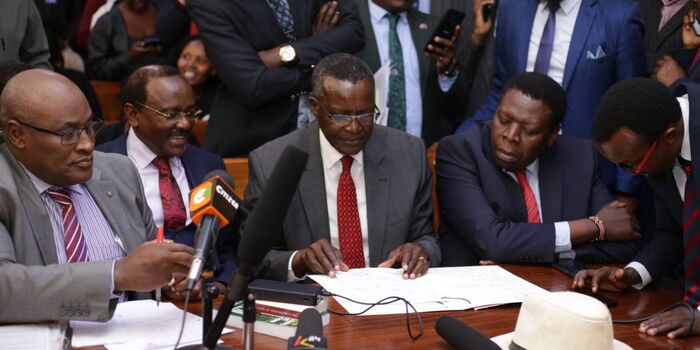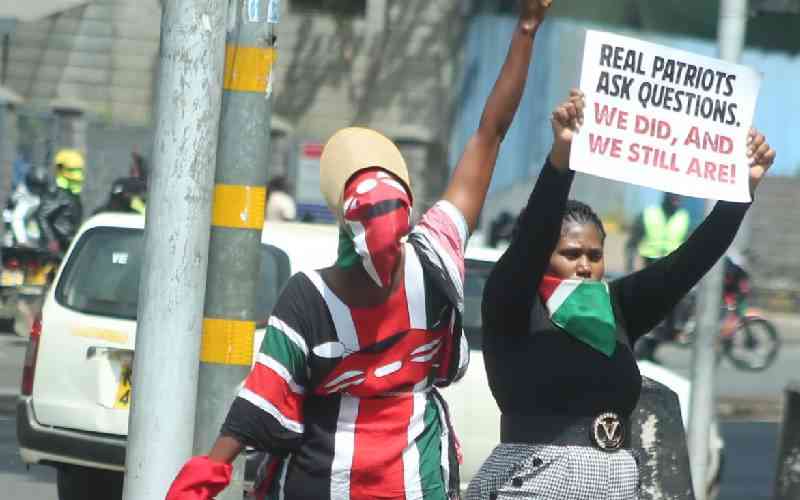Kenya Gen Z Protests Against Finance Bill 2025

President William Ruto officially assented to law the Finance Bill 2025, alongside the Supplementary Appropriation Bill 2025 and Appropriations Bill 2025, during a ceremony at State House, Nairobi, on Thursday, June 26, 2025. This legislative action marks a significant moment for Kenya's economic landscape, with the Finance Act 2025 expected to raise approximately KSh 24 billion. The comprehensive bill aims to streamline revenue collection, improve the business environment, and foster innovation-driven economic growth by amending key tax legislation, including the Income Tax Act, VAT Act, Excise Duty Act, and the Tax Procedures Act. Notable changes include the mandatory application of tax reliefs, deductions, and exemptions by employers, an increase in the daily tax-exempt subsistence allowance from KSh 2,000 to KSh 10,000, and the full exemption of pension and retirement gratuity payments from tax. The Digital Assets Tax has been repealed and replaced with a 5% excise duty on transaction fees for virtual asset providers, and Capital Gains Tax has been reduced from 15% to 5% for high-value investments. Furthermore, a reduced corporate tax rate of 15% is offered for startups for their first three years and for large investors injecting over KSh 3 billion into the economy for ten years. The Appropriations Bill 2025 authorizes the National Treasury to withdraw KSh 1.88 trillion from the Consolidated Fund for government spending in the financial year ending June 30, 2026, with an additional KSh 671.99 billion from internally generated revenues of Ministries, Departments, and Agencies (MDAs). Significant budget allocations include KSh 47.6 billion for agriculture and food security, KSh 133.4 billion for Universal Health Coverage, KSh 658.4 billion for education, and KSh 217.3 billion for roads.
Despite the government's efforts to present these measures as beneficial for the economy, the signing of the Finance Bill occurred amidst widespread public unrest. Wednesday, June 25, 2025, saw nationwide protests, largely led by Generation Z activists, which marked the anniversary of previous anti-Finance Bill demonstrations in 2024. These protests, which quickly escalated from peaceful commemorations to violent confrontations, were fueled by deep-seated frustrations over police brutality, government corruption, economic hardship, and unaddressed human rights abuses, including the custodial death of blogger Albert Ojwang. Authorities responded with tear gas, water cannons, rubber bullets, and live ammunition in major cities like Nairobi, Mombasa, Kisumu, and Nakuru.
The protests resulted in significant casualties and widespread destruction. Reports indicate at least 8 to 16 fatalities, with Amnesty International Kenya confirming 16 verified deaths, most attributed to police actions, including five gunshot deaths. Over 400 people were injured, including more than 300 police officers and 100 civilians, with many suffering bullet wounds. A Form Four student was tragically shot dead in Molo. At least 61 individuals were arrested and detained. The economic toll was severe, with an estimated KSh 3 billion in daily losses for Micro, Small, and Medium Enterprises (MSMEs) due to business closures, destruction, and theft across 24 counties. Numerous shops, including Bata, Naivas, Quickmart, and electronic stores, were looted and sometimes torched. Banks were not spared, with Co-operative Bank branches in Githurai and Dagoretti reporting ATM destruction and minimal cash loss. Public property also suffered extensive damage, with Kikuyu Law Courts and Dagoretti Police Station set ablaze, and 29 county and national government vehicles torched in Ol Kalou. Interior Cabinet Secretary Kipchumba Murkomen reported that 88 police vehicles were destroyed and several police stations attacked, with five torched and guns stolen.
The government's response to the protests drew criticism. The Communications Authority of Kenya (CAK) imposed a controversial live media blackout, accusing some broadcasters of actively mobilizing demonstrators rather than providing objective coverage. Major media outlets defied this order, citing press freedom. Interior CS Murkomen condemned the protests as












